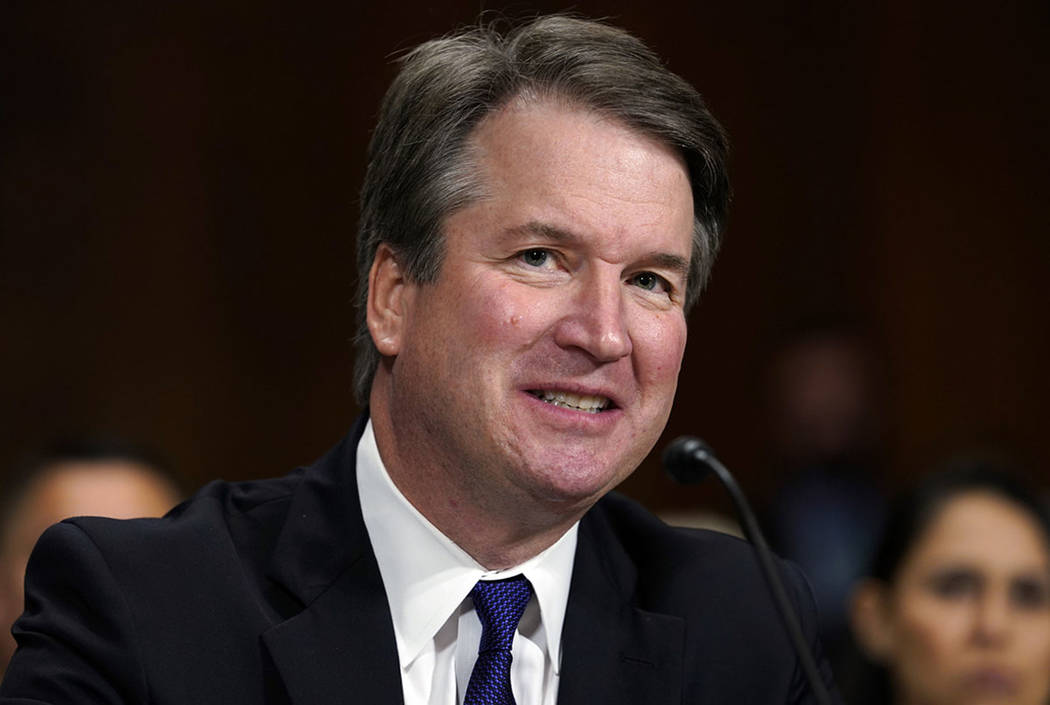Court’s conservatives seem fine with census citizenship question

WASHINGTON — The Supreme Court’s conservative majority seemed ready Tuesday to uphold the Trump administration’s plan to ask about citizenship on the 2020 census , despite evidence that millions of Hispanics and immigrants could go uncounted.
There appeared to be a clear divide between the court’s liberal and conservative justices in arguments in a case that could affect how many seats states have in the House of Representatives and their share of federal dollars over the next 10 years. States with a large number of immigrants tend to vote Democratic.
Three lower courts have so far blocked the plan to ask every U.S. resident about citizenship in the census, finding that the question would discourage many immigrants from being counted. Two of the three judges also ruled that asking if people are citizens would violate the provision of the Constitution that calls for a count of the population, regardless of citizenship status, every 10 years. The last time the question was included on the census form sent to every American household was 1950.
Concern not shared
But over 80 minutes in a packed courtroom, the conservative justices did not appear to share the concern of the lower court judges.
Justice Brett Kavanaugh, the court’s newest member and an appointee of President Donald Trump, suggested Congress could change the law if it so concerned that the accuracy of the once-a-decade population count will suffer. “Why doesn’t Congress prohibit the asking of the citizenship question?” Kavanaugh asked near the end of the morning session.
Kavanaugh and the other conservatives were mostly silent when Solicitor General Noel Francisco, the administration’s top Supreme Court lawyer, defended Commerce Secretary Wilbur Ross’ decision to add the citizenship question. Ross has said the Justice Department wanted the citizenship data, the detailed information it would produce on where eligible voters live, to improve enforcement of the Voting Rights Act.
Lower courts found that Ross’ explanation was a pretext for adding the question, noting that he had consulted early in his tenure with Stephen Bannon, Trump’s former top political adviser and immigration hardliner Kris Kobach, the former Kansas secretary of state.
Liberals fire questions
The liberal justices peppered Francisco with questions about the administration plan, but they would lack the votes to stop it without support from at least one conservative justice.
“This is a solution in search of a problem,” Justice Sonia Sotomayor, the court’s lone Hispanic member, said of Ross’ decision.
Justice Elena Kagan chimed in that “you can’t read this record without sensing that this need was a contrived one.”
Chief Justice John Roberts appeared to have a different view of the information the citizenship question would produce.
“You think it wouldn’t help voting rights enforcement?” Roberts asked New York Solicitor General Barbara Underwood, who was representing states and cities that sued over Ross’ decision.
Underwood said the evidence Ross had before him was “that it would not give better citizenship information.”
And, Underwood said, the record is clear that a census that asks people if they are citizens will be less accurate.
Census Bureau experts have concluded that the census would produce a more accurate picture of the U.S. population without a citizenship question because people might be reluctant to say if they or others in their households are not citizens. Federal law requires people to complete the census accurately and fully.
Tight timeframe
The Supreme Court is hearing the case on a tight timeframe, even though no federal appeals court has yet to weigh in. A decision is expected by late June, in time to print census forms for the April 2020 population count.
The administration argues that the commerce secretary has wide discretion in designing the census questionnaire and that courts should not be second-guessing his action. States, cities and rights groups that sued over the issue don’t even have the right to go into federal court, the administration says. It also says the citizenship question is plainly constitutional because it has been asked on many past censuses and continues to be used on smaller, annual population surveys.
Justice Neil Gorsuch, also a Trump appointee, also noted that many other countries include citizenship questions on their censuses.
Douglas Letter, a lawyer representing the House of Representatives, said the census is critically important to the House, which apportions its seats among the states based on the results. “Anything that undermines the accuracy of the actual enumeration is immediately a problem,” Letter said, quoting from the provision of the Constitution that mandates a decennial census.
Letter also thanked the court on behalf of Speaker Nancy Pelosi for allowing the House to participate in the arguments.
“Tell her she’s welcome,” Roberts replied.
___
Associated Press writers Jessica Gresko and Darlene Superville contributed to this report.